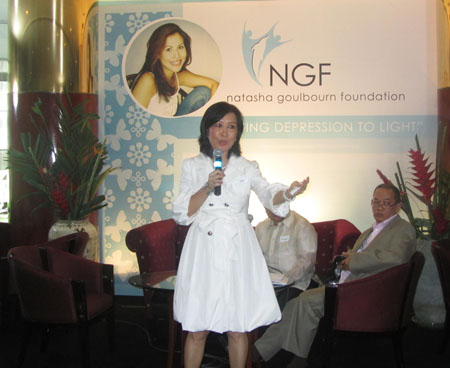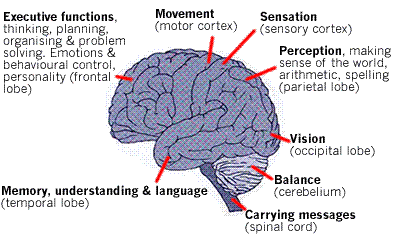Dissecting depression
I get many emails from readers after reading my Suicide Prevention page, saying they are depressed or feel hopeless. Sometimes I also get tweet mentions… Read More »Dissecting depression
I get many emails from readers after reading my Suicide Prevention page, saying they are depressed or feel hopeless. Sometimes I also get tweet mentions… Read More »Dissecting depression
““Mental illness is nothing to be ashamed of, but stigma and bias shame us all.” Bill Clinton

Did you know that the Philippines has the highest incidence of depression in Southeast Asia? In 2004, there were over 4.5 million cases of depression reported in the Philippines.
Jeanne Goulbourn shares her wisdom on depression.
““Depression is a condition that knows no social class; it could strike anyone regardless of intelligence, educational attainment and financial standing.”
This wisdom she has learned in the midst of pain brought about by the sudden and untimely demise of her well-loved daughter, Natasha, who suffered from depression. As she grieved over her daughter’s passing, Jeanne said she asked God what losing her daughter meant, and prayed for a sign. The sight of over 100 dolphins convinced her she had a higher calling to help people with depression.
“I prayed that if I see five dolphins, Natasha might be in hell. If I see 10 dolphins, could she be in purgatory? But God, if you show me a lot of dolphins, more than 10, I know my daughter is with you. We saw about 108 in Puerto Galera,” she recalled, saying the sight was so rare it even brought the boatman to tears.
Like Jeanne, we know our grief will always be a part of our life and we eventually find ways to resolve it. She and a group of friends from various sectors formed the Natasha Goulbourn Foundation (NGF) five years after the death of Natasha. Its primary advocacy is to promote awareness on depression.

Not many know what depression is. I have written about suicide prevention and mental health before just to raise awareness. I don’t claim to be an expert on mental health. It’s just that in the course of my grief work at the Compassionate Friends Philippines, I’ve come across a few observations of these mental health issues.
1. Shame often prevents a person from seeking medical help because of this stigma towards mental illness. And even if they ask for help, the gravity of their problem is minimized as mere despair. Oh yes, I know of one death by suicide from a friend because of this reason alone.
Read More »The Natasha Goulbourn Foundation: Bringing depression to light
““Mental health problems do not affect three or four out of every five persons but one out of one.” Dr. William Menninger
“Mental illness is nothing to be ashamed of, but stigma and bias shame us all.” Bill Clinton

A hot topic in the election season is the fake mental health document of a presidential candidate. I won’t bother with the current news surrounding this. What bothers me is that mental illness or seeing a psychiatrist is such a taboo in the Philippines.
In 2006, a biographical source material in 37 US presidents from 1776 to 1974 was published in The Journal of Nervous and Mental Diseases on the topic of Mental Illness in U.S. Presidents... and concluded that 18 presidents (49%) met criteria suggesting psychiatric diagnoses and in 10 instances (27%)”a disorder was evident during presidential office, which in most cases probably impaired job performance”. The list includes:
The authors concluded that no national calamities appeared to have occurred due to presidential mental illness.
This latest black propaganda should have been an opportunity to discuss the stigma of mental illness, the treatment of mental illness and that it is not wrong to see a psychiatrist. The fact that people seek help is a good sign.